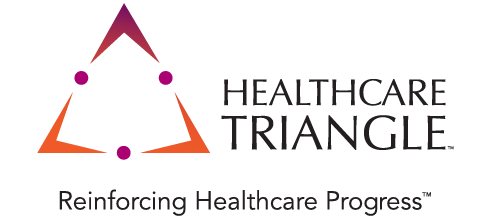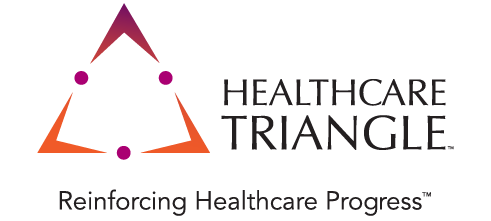Breaking Down Blockchain’s Big Potential: What Pharma Leaders Should Know
Healthcare Triangle
Oct 27, 2021
There is a burning need for blockchain in pharma. Today, large pharmaceutical companies are betting on blockchain to help accelerate drug development and discovery, better understand how certain chemicals affect specific demographics, and improve their supply chain, all by securely sharing data in real time.
Consider that pharmaceutical companies lose $200 billion per year to counterfeit drugs. With blockchain, pharma companies can track the distribution of prescription drugs in real time. In an instant, a distributor can scan a bottle of medication and quickly ascertain whether the drug is coming from the original manufacturer or whether it is a counterfeit. It’s an approach that could save pharmaceutical companies $43 billion per year while protecting the health and safety of consumers. In the past year, we’ve seen the FDA begin to pilot blockchain to test its potential to track and trace medications.
But even as pharma companies become more skilled at using blockchain technology, most face challenges in leveraging blockchain effectively. As a result, multiple opportunities exist to capture the low-hanging fruit from their investment.
Stumbling Blocks to Blockchain Value
The business case for blockchain is compelling: Gartner projects that blockchain’s business value will reach $176 billion by 2025 and $3.1 trillion by 2030. In 2020 alone, blockchain made headlines for its ability to support smarter vaccine distribution, collaborative COVID-19 research, faster drug development, and more. Top use cases for blockchain in pharma include:
- Enhanced ability to reproduce clinical research. Lack of reproducibility compromises the outcomes of clinical studies and weakens research quality. Blockchain not only offers a sharable distributed ledger for capturing every step of clinical research, but also immutability—essential to protecting the integrity of the information that has been tracked.
- More robust tools for protecting patient data. Data security and privacy are major concerns of patients participating in clinical trials. Patients also desire control of their health data as well as the consents they have provided. Blockchain significantly strengthens clinical data management and processes, enhancing transparency and trust.
- Rapid validation of clinical trial outcomes. Blockchain can be used to develop public registries for the rapid disclosure of clinical trial results. In addition, access to a central repository of data in real time helps shorten timelines for clinical trials, while smart contracts enforce transparency, traceability, and control over clinical trial sequences.
- Better information on how drugs are made and distributed. Blockchain’s advanced features provide the basis for complete traceability of drugs, from the manufacturer to the end consumer, an area of significant focus for regulatory agencies and consumers. Blockchain also can pinpoint the source of supply chain breakdowns when issues occur.
As a result, nearly 90% of life sciences experts believe in blockchain’s potential to transform the industry, a recent survey found.
However, lack of access to the right skills for leveraging blockchain holds 30% of organizations back from pursuing blockchain as a digital transformation strategy, according to the survey. Industry experience points to other common roadblocks to achieving blockchain’s full value, including failing to staff blockchain with the right talent; difficulties in selecting the right blockchain protocol for a given use case; and struggles to integrate existing IT assets into one or more target blockchain networks.
Optimizing Value from Your Blockchain Investment
In an era of digital transformation, blockchain brings trust, accountability, and transparency to digital transactions in a shared environment. But getting the most from your blockchain investment takes a strategic approach to planning, implementation, and blockchain management. Here are four key considerations for pharma leaders.
No. 1: Invest in a ready-to-deploy blockchain network that can operate on any public cloud. This approach enables life sciences leaders to focus on organizational goals rather than deploying, managing, and optimizing their blockchain network. It also helps control the costs of blockchain implementation and management. For example, selecting a plug-and-play blockchain solution ensures access to blockchain experts who can provide support for a wide range of use cases.
No. 2: Fine-tune your IT integration strategy. To fully leverage your blockchain investment, it’s important to consider how existing IT assets will be integrated into one or more blockchain networks. For example, pharmaceutical supply chains are complex, requiring the input of multiple stakeholders with numerous requirements. Integrating supply chain management platforms with blockchain enables the development of a simple, single-use system for all stakeholders, enhancing transparency, security, and oversight of the end-to-end delivery of goods. Pharma leaders also should ensure they are choosing the right blockchain protocol—from Hyperledger to Enterprise Ethereum and more—for a given use case.
No. 3: Carefully develop your smart contract strategy. Which aspects of your organization’s business would benefit from a smart contract strategy? For example, smart contracts can be programmed to automatically alert relevant parties when compliance conditions are not met, including guidelines around handling and storage conditions for drugs as they are transported. It’s also important to consider not only how existing IT systems will be affected by the move toward smart contracts, but also the ways in which business processes will need to be adjusted to accommodate this shift.
No. 4: Take a “DevOps” approach to blockchain management. One common pitfall that pharma companies face in optimizing blockchain is treating their investment as simply an extension of the organization’s data center. A DevOps approach combines best practices in software development and IT operations to evolve and improve blockchain at a faster pace than traditional software development processes typically allow. This positions pharma organizations to capture the low-hanging fruit from their investment. It also empowers them to compete more effectively in the market.
By taking a thoughtful, strategic approach to blockchain planning and implementation, leaders can focus on leveraging blockchain to meet the organization’s goals rather than the day-to-day aspects of blockchain management.
Bio: Suresh Venkatachari is CEO, Healthcare Triangle.
Drop an email to info@healthcaretriangle.com or schedule a consultation.


